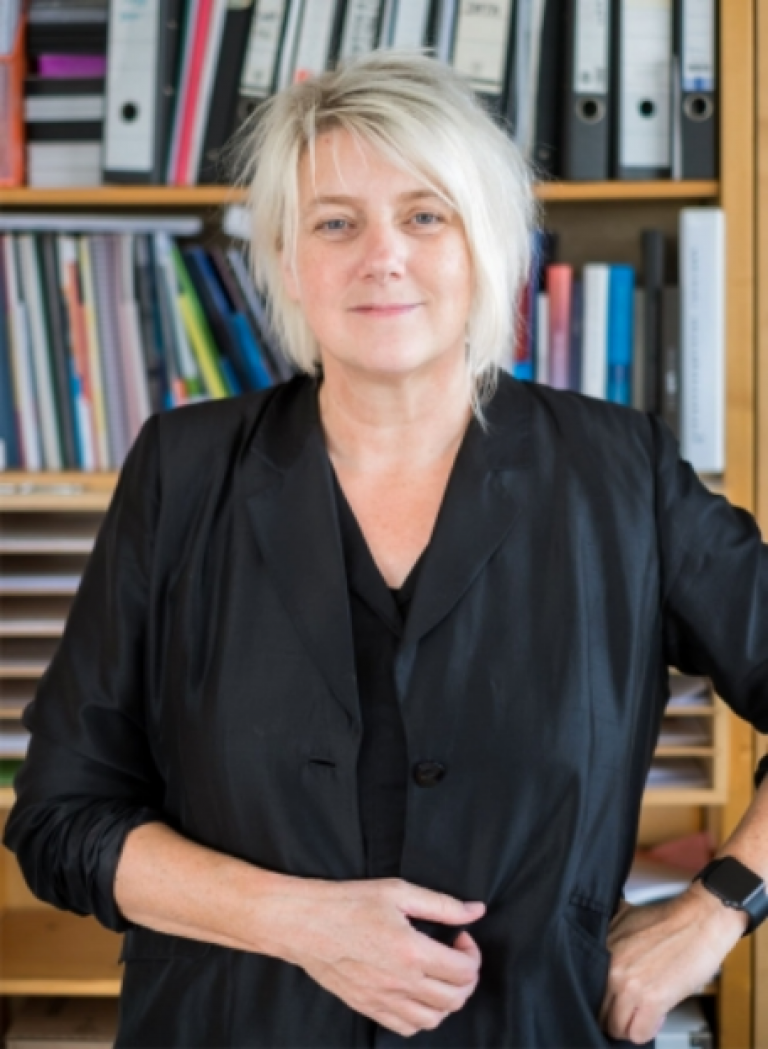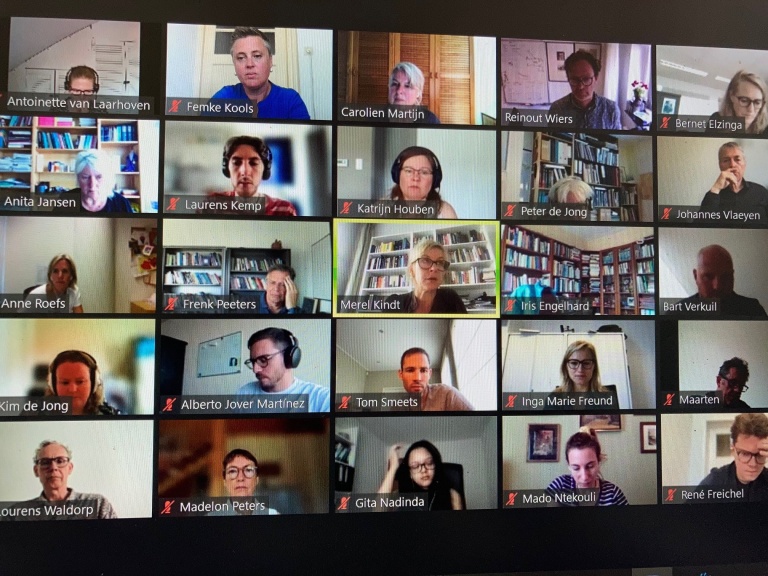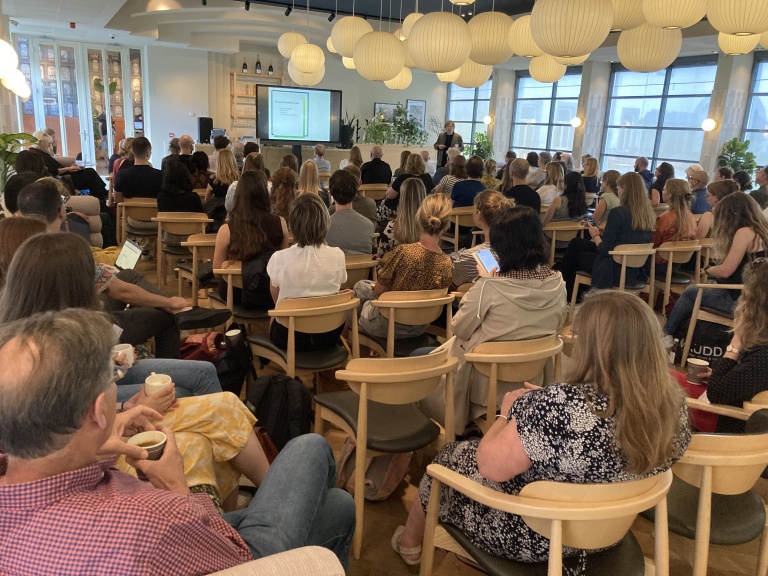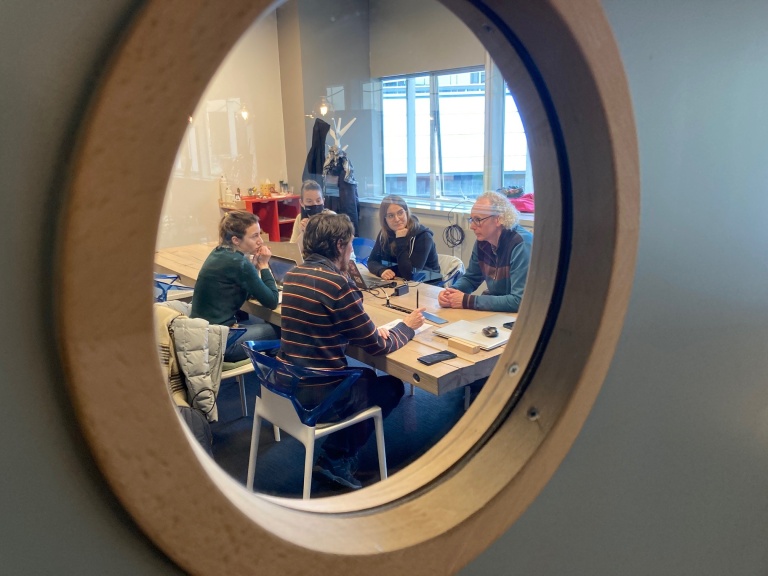'Time flies when you're having fun'. That is how Anita Jansen, scientific director of New Science of Mental Disorders (NSMD), would summarise the past three years. While the first PhD students see the finish line slowly looming on the horizon, the first evaluation by grant provider NWO is just around the corner. Time to look back and forward with the prof for whom science and 'having fun' are synonyms, but always with a keen eye on the end goal.
To start with NSMD's end goal: that is an answer to the question of whether the network approach to mental health problems contributes to better diagnosis and treatment within the mental health system. NSMD looks beyond the categories in the psychiatric manual DSM (Diagnostic and Statistical Manual of Mental Disorders). Jansen: "The various symptoms someone has interact with each other and such an interacting network could be called the actual disorder. By mapping these interactions, along with related thoughts, behaviours and contexts, it is possible to examine very precisely why problems persist, or actually diminish or worsen." A network of symptoms is often transdiagnostic, which means it usually does not necessarily fit within one particular diagnosis as we use it to date. NSMD hopes to be able to say by 2030 whether diagnostics and treatment based on such a (transdiagnostic) individual network of symptoms is more effective than current, DSM-based treatments for complex mental disorders in particular.
In September 2019, NSMD received the largest research grant from the Netherlands Organisation for Scientific Research (NWO): Gravitation. Six months later, the country was in lockdown due to corona.
Did that affect NSMD?
"A project like this largely runs on young researchers, who do a four-year PhD trajectory. Starting as a PhD student in a lockdown is not optimal, so we delayed the start of most projects until September 2020. Even then, there was corona and even then it was not easy for some. But all our young researchers are doing very well, doing wonderful research and developing into real experts in the network approach to mental health problems. We currently have 16 PhD projects running and four about to start. When we get the green light from NWO for the second part of NSMD, a lot more projects will start."
Is it easy to find good people?
"Yes, it's going really well. Student interest is huge, even when we don't have vacancies, so we have been able to attract excellent young researchers. In doing so, we also pay attention to diversity, of course. Because our research field mainly attracts female students, they are also in the majority in our group of PhD students and postdocs. So in our case, men are actually the 'underrepresented group' that we pay particular attention to in applications. We are also diverse in other respects; sometimes we recruit specifically for Dutch-speaking researchers because they have to communicate with patients and staff in Dutch mental health institutions, but more than half of our researchers come from abroad, from Germany to Indonesia and Greece."


The entire consortium now consists of over 40 researchers, from seven Dutch universities. How do you make a team out of that?
"It helps that we have six interuniversity teams within NSMD, from Emotional Memory to Cognitive Control, for example, in which researchers from different universities work together. Of course, many top researchers had known each other for a long time and many had worked together before, the Netherlands is not that big. PhD students are often supervised by an interdisciplinary team. And we regularly organise meetings, online for the entire consortium around an NSMD theme or live, to brush up on network analysis techniques. Once a year, we have a two-day conference, also for our supervisory boards, and as a seven-member scientific board, we 'zoom in' once a month to keep the lines of communication short. All in all, this makes it feel like a close-knit NSMD team."
What do you look back on with satisfaction?
"The substantively strong, interdisciplinary team we have established, in which new ideas for relevant lines of research are constantly emerging. It almost feels like a playground when you bring all these smart people together and let them spar with each other. It inspires, it buzzes, it makes me very happy. The fact that we can train a new generation of researchers this way is something to be very grateful for. There are still a lot of intellectual and practical challenges, but step by step we are getting closer to our goal."

What has been complicated so far?
"Focusing on that goal did prove to be a point of attention. After all, researchers are extremely curious people who can think up hundreds of interesting research questions. It was sometimes difficult to get everyone on the same page; we all have to focus on our common end goal, because ten years will have passed before you know it. So if nice plans don't fit so well with NSMD's end goals, we can't fund them. These have sometimes been difficult conversations, but this year, our clinical and scientific advisory boards too have urged us to focus. In addition, the increased bureaucracy, both inside and outside the university, sometimes complicates our lives unnecessarily."
Do you also look at what colleagues abroad are doing in this field?
"Absolutely. Science is not limited to national borders. We have many contacts and collaborations with foreign scientists and, of course, we read everything others are doing in this field. At our last online networking meeting, there was a guest speaker from the University of Osnabrück, Mila Hall, who presented a very relevant and inspiring study, and two leading international researchers are coming to speak at our annual NSMD conference: Cheri Levinson from the University of Louisville and Omid Ebrahimi from the University of Oslo. We hope to establish an international centre of excellence around the network approach to mental health problems in the near future."
What more will the second half of the project bring?
"Many of our new NSMD projects are going to develop and test network treatments, which are new treatments that - across diagnoses - target individual networks. We are also thinking of developing a toolkit for clinicians to work with in the future. We will collaborate with a number of mental health institutions in the Netherlands, who, like us, are curious about the new symptom network-inspired treatments. With their help, we aim to involve many hundreds of patients in our studies on individual symptom networks. We find that many practitioners are very interested and sometimes can’t wait to start working with this approach. But they’ll have to wait a bit longer on us and science: the question of whether we can better treat according to the network approach to mental health problems is extremely fascinating, but we don't have an answer to it yet."
